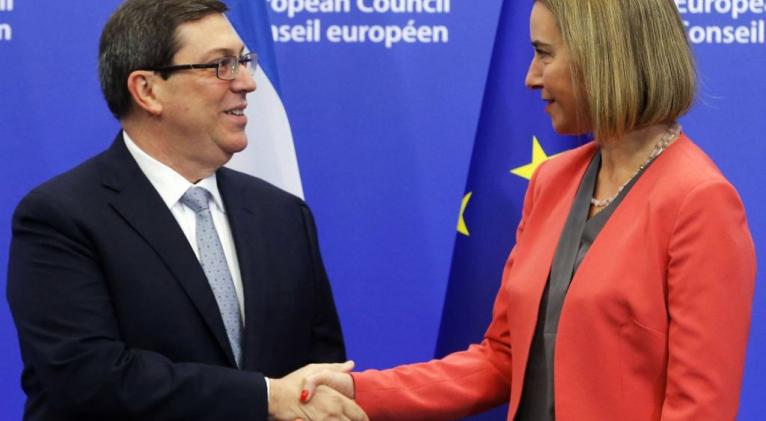Cuba, EU Mark Breakthrough in Normalizing Ties With New Deal
especiales

Cuba and the European Union signed a breakthrough agreement in Brussels Monday, further thawing chilled relations between them as the European bloc lifted an economic blockade that has been in place against the island for the past two decades.
OPINION: Fidel’s Legacy to the World: Revolutionary Theory and Practice
The new deal, which has been heralded as “historic,” brings Cuba on board alongside all other Latin American countries in having a “dialogue and cooperation” agreement with the EU touching on issues of trade, migration and human rights.
Key in enabling the deal was the fact that EU decided to scrap its 1996 policy towards Cuba that froze economic relations over alleged human rights concerns.
“It is a historic day,” said EU foreign affairs chief Federica Mogherini. “In fact, I'm also pleased to inform you that the European Council has adopted the decision to overturn the 1996 European Union's common position on Cuba, effective as of today's signature."
The deal expands progress toward normalized relations between the EU and Cuba, a process that — though in march for years — has been largely overshadowed by Cuba’s reestablishment of diplomatic relations with the United States.
Monday’s deal is the most significant step in the normalization of EU-Cuba relations since the European bloc lifted sanctions against the island in 2008.
ANALYSIS: Fidel's Commitment to Women's Emancipation Unparalleled
Cuban Foreign Minister Bruno Rodriguez welcomed the development, noting that it marks “good will and respect” between the two sides and shows “it is possible to make progress and resolve differences.”
“Economic links with Europe will continue to be a priority for Cuba, as we build an efficient, sustainable, socialist economy,” Rodriguez added, noting that the U.S. economic blockade against Cuba continues to be a major challenge for the island.
Rodriguez also recalled that in 2003, then-President Fidel Castro, identified the European Union as a counterbalance to the United States and its strict Cold War economic sanctions against Cuba. The same year, the EU imposed sanctions on Cuba over alleged human rights abuses and it wasn’t until 2008 that the lengthy normalization of bilateral ties kicked off again.
“The sovereignty and dignity of a people cannot be up for negotiation with anyone," Rodriguez said.
Former president and leader of the Cuban Revolution, Fidel Castro, died on Nov. 25, prompting reflection around the globe on his legacy of anti-imperialism and internationalism. Fidel officially left politics in 2008 after going on medical leave in 2006, and his then-vice president and younger brother, Raul Castro, has been president ever since.
The new deal will now be ratified in the European Parliament and Cuban National Assembly.













Add new comment